HS2 compensation to be 'comprehensive'
- Published
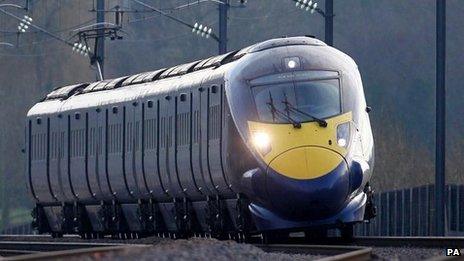
The first phase of the HS2 rail line will require 338 homes to be demolished to allow for construction work
Residents affected by the first phase of the HS2 rail line will be offered a "comprehensive package of compensation measures", the government says.
Phase one of the £33bn high-speed rail link, between London and Birmingham, is due to start operating in 2026.
The Department for Transport says the compensation would be "significantly beyond statutory requirements".
Protest groups say the planned route crosses and would damage an area of outstanding natural beauty.
Rail minister Simon Burns said compensation would "strike the right balance for local communities and the British taxpayer".
The government has pledged to buy any owner-occupied home in the "safeguarded area".
This covers the space within 60 metres of the planned route, and includes 338 homes that will have to be demolished to make way for the first phase of the rail line.
And as well as paying the 'unblighted' value of the property, the government is proposing to pay additional compensation of 10% up to the value of £47,000.
The government says that other elements of its compensation package include:
establishing a "voluntary purchase zone" immediately outside of the safeguarded area in rural areas, within which homeowners can sell their homes at their full "un-blighted" value
a long-term hardship scheme to help those with a need to move during the development of HS2 but who are unable to sell their home
a sale and rent back scheme for homeowners who wish to stay in properties which will eventually be required by the rail scheme
measures to "provide clarity and reinforce confidence" in properties above tunnels, including before and after surveys
a pledge to work with local authorities, housing associations and affected tenants to develop a strategy for replacing any lost social rented housing
The HS2 rail route from above
Mr Burns said the government had thought hard about the compensation on offer: "No major infrastructure project on this scale can be built without some impact on local communities, but I am determined to do everything I can to minimise the effect of HS2 on those closest to the line.
"We have developed the right compensation package, providing absolutely the right support for those affected, while at the same time protecting the interests of taxpayers. The measures I have announced are fair and strike the right balance for local communities and the British taxpayer."
Environmental concerns
The government has previously said that the London-to-Birmingham link would be followed by a second phase of the Y-shaped route reaching Manchester and Leeds by about 2033.
A consultation on the second phase will begin in early 2014, with a final route chosen by the end of that year.
Travelling at speeds of up to 250mph, passengers will be able to commute from Birmingham to London in 49 minutes, reducing the journey time by almost half from one hour and 24 minutes.
A Birmingham-to-Leeds journey will be reduced from two hours to 57 minutes and a Manchester-to-London journey from two hours and eight minutes to one hour and eight minutes.
Connections to existing lines should then cut journey times between London, and Edinburgh and Glasgow, to three-and-a-half hours.
The first phase of HS2 will include a connection to mainland Europe via the Channel Tunnel. On completion of HS2 the network will include a direct link to Heathrow.
'Buy off opposition'
But protest groups formed to oppose the scheme say the planned route would damage an area of outstanding natural beauty.
Opponents have also challenged the government's economic argument, suggesting the costs will be greater while the benefits will be lower than forecast.
They suggest that the business case for HS2 is based on an overly-optimistic prediction of growth in demand for long-distance train travel.
Joe Rukin, of the Stop HS2 campaign group, said it was "astounded" by the government's proposals.
"They clearly haven't costed this properly and it's only going to jack up the cost of an unnecessary project," he said.
"It's a cynical attempt to buy off the opposition which won't work. Also, we are absolutely gobsmacked at the size of the safeguarded area. It's absolutely massive and will make it difficult for people to get on with their lives for the next 15 years."
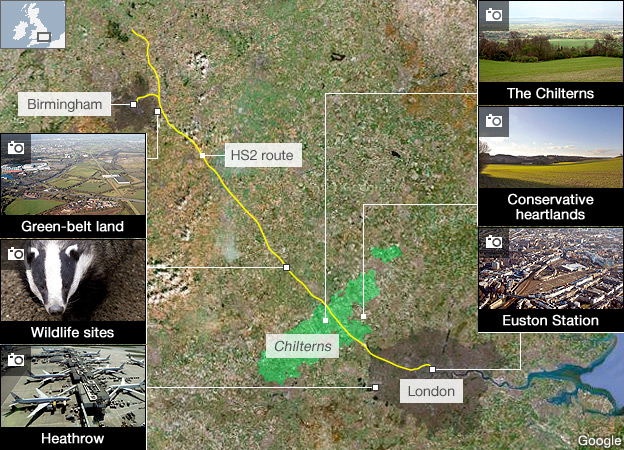
Green-belt land
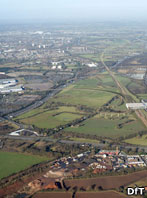
The planned route encroaches on green-belt land in a number of areas, including around London and Birmingham.
The Campaign to Protect Rural England argues plans for new out-of-town parkway stations would have a "devastating" effect on green belt and that the economic benefits would be a fraction of those that would be achieved from town centre stations.
The campaign group wants, in particular, changes to the proposed Birmingham interchange station, which it says will "encroach into the green belt next to Birmingham Airport".
Wildlife sites

County wildlife trusts are concerned the proposed route will pose a threat to wildlife. They estimate more than 150 nature sites could be affected, including 10 Sites of Special Scientific Interest (SSSIs).
Four nature reserves will be directly impacted, they say. They are Finemere Wood Nature Reserve and the Calvert Jubilee Nature Reserve, managed by the Berks, Bucks and Oxon Wildlife Trust, Broadwater Lake Nature Reserve, managed by Herts and Middlesex Wildlife Trust, and Park Hall Nature Reserve, managed by the Wildlife Trust for Birmingham and the Black Country.
The government has said that extra tunnelling and route amendments mean that the impact of more than half the route will now be mitigated. However, the wildlife trusts say this could actually make the damage to wildlife worse.
Heathrow
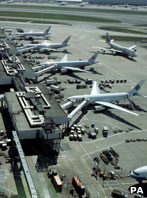
The second phase of the government's plans include a possible future spur to Heathrow Airport in west London.
The HS2 line from London to Birmingham is expected to open in 2026, followed in 2032-33 by high speed links to Manchester, Leeds and Heathrow.
However, in November, the Commons Transport Committee said a case for routing HS2 via Heathrow had not been set out clearly and needed further analysis.
Labour, which supports HS2, has suggested the first phase main route should actually travel via Heathrow, creating a hub at the airport and thus making it easier for travellers from south-west England to get on fast trains to the north. It would also protect the most sensitive parts of the Chilterns, the party says.
The Chilterns
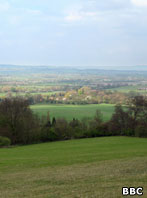
The proposed HS2 line crosses the Chilterns area of outstanding natural beauty (AONB). Environmental and local campaigners say the picturesque landscape will change forever if plans are approved.
The government was due to make an announcement on HS2 in December, but delayed it to incorporate miles of extra tunnelling to try to appease opponents. It has added 7.5 miles of tunnelling and 3.5 miles of deep cuttings along the 13 miles of proposed line through the Chilterns AONB.
The Campaign to Protect Rural England has said additional tunnelling would be "essential" if HS2 is to be built through the area.
Conservative heartlands

A number of Conservative MPs have expressed concerns about the rail link, which passes through Tory heartlands. Welsh Secretary Cheryl Gillan has been one of the most vocal Conservative critics and says she is prepared to resign over the project that cuts through her Chesham and Amersham constituency.
Dan Byles, Conservative MP for North Warwickshire and Bedworth, and Andrea Leadsom, Conservative MP for South Northamptonshire, have also voiced concerns.
To try to win over critics, ministers have added a overall total of eight miles of tunnelling along the route - mostly in the Chilterns. The changes include extended tunnelling near Amersham, in Mrs Gillan's constituency, near Ruislip in north-west London, Turweston and Wendover in Buckinghamshire, Greatworth, Chipping Warden and Aston le Walls in Northamptonshire, and Long Itchington Wood in Warwickshire.
Euston station
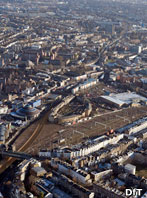
Campaigners fear the planned remodelling of Euston Station will lead to disruption that could last for many years.
Last year, a study from The TaxPayers' Alliance said passengers would face slower and less-frequent services if the scheme went ahead. Creating the London to Birmingham HS2 would mean Euston station in London "becoming a building site for seven years", it said.
Labour's Frank Dobson, MP for Holborn and St Pancras, told MPs the station was already overcrowded and lacked the infrastructure in surrounding streets to be the terminus for a high-speed rail link. The proposals would also mean the demolition of the homes of more than 350 of his constituents, he said.
The government has said its revised route halves the number of homes affected.
- Published23 May 2012
- Published10 January 2012